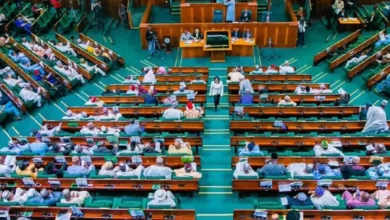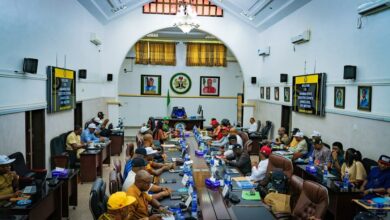Breaking cycle of sexual harassment in showbiz, by Abdulhakeem Yetu Zakari |

Despite growing awareness, sexual exploitation continues to cast a dark shadow over the entertainment industry. Behind the glitz and glamour, many aspiring talents face coercion, harassment, and abuse in their pursuit of success. To create a safer industry, stronger policies,
accountability, and systemic change are urgently needed.
Sexual exploitation in entertainment is an open secret, one that has persisted for decades. It manifests in various forms, from coercion and harassment to outright trafficking. Vulnerable individuals, often young and inexperienced, are preyed upon by those wielding power.
The “sex-for-role” culture, where opportunities are exchanged for sexual favors, remains alarmingly prevalent. Those who resist or speak out risk being blacklisted, retaliated against, or even driven out of the industry entirely.
The entertainment world thrives on connections, and unfortunately, this has allowed predators to operate with impunity. Victims, fearing career sabotage or public shaming, often remain silent. The imbalance of power between industry gatekeepers and struggling artists makes it even harder to challenge abusive behaviors.
The #MeToo movement, which gained global traction in 2017, was a watershed moment. Survivors courageously came forward, exposing influential figures like Harvey Weinstein and forcing the industry to confront its deep-seated issues. This sparked widespread discussions, policy changes, and an increased demand for accountability. Despite these strides, exploitation remains a pressing issue. While some perpetrators have been held accountable, many still evade justice. Survivors continue to face obstacles in their pursuit of legal recourse, with cases often dismissed or settlements used to silence victims.
Ending sexual exploitation in entertainment requires more than just conversations, it demands concrete action:
Also Read
Stronger Legal Frameworks – Governments and industry regulators must enforce stricter policies against workplace harassment and sexual exploitation. Clear legal consequences should deter potential offenders.
Whistleblower Protection – Survivors and witnesses should be able to report abuse without fear of retaliation. Anonymous reporting systems and legal safeguards are crucial.
Industry Accountability – Entertainment companies must adopt zero-tolerance policies for misconduct, conduct thorough background checks, and establish independent oversight committees to investigate allegations.
Empowering Victims – Access to legal aid, mental health support, and career counseling can help survivors rebuild their lives. Platforms that amplify their voices must be encouraged.


Changing the Culture – Education on consent, power dynamics, and ethical professional relationships should be integrated into industry training programs. A shift in mindset is necessary to dismantle the normalization of abuse.
The fight against sexual exploitation in entertainment is far from over. Every stakeholder, from industry executives to audiences, has a role to play in demanding transparency, justice, and respect for all talents. Only through sustained pressure and institutional reform can we ensure an industry where success is based on talent, not exploitation.
It is not just a matter of morality but of fundamental human rights. The time to act is now.
Abdulhakeem Yetu Zakari is an intern with PRNigeria. He can be reached via abdulhakeemzakari7@gmail.com
Post Views: 17






